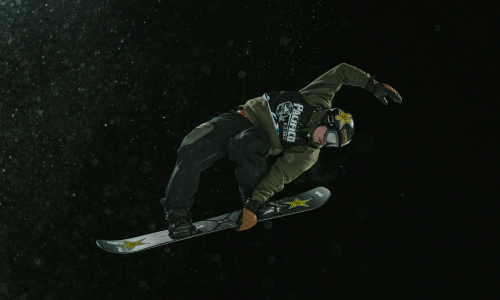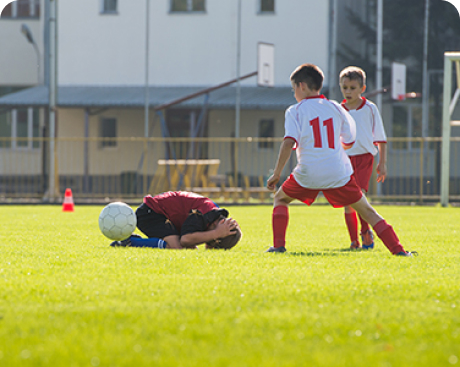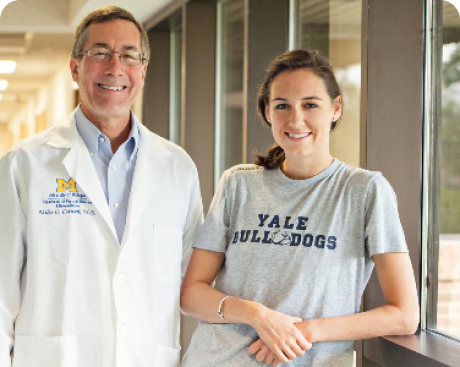Former professional snowboarder Jake Pates has suffered from numerous concussions during his 15 year career. Taking all those hits to the head eventually led to PCS (post-concussion syndrome), and included symptoms such as headaches, anxiety, and other behavioral changes. With the 2019-2020 season on pause from the pandemic, Jake spent his time starting a nonprofit aimed at helping prevent athletes from returning to action before it is safe to do so. Below, Jake shares his recovery journey and the new purpose he has taken up since retiring from the sport.

Over the last 15 years pursing snowboarding as a career, I’ve experienced many repeated concussions, many of which were second impacts before healing from a previous hit. During the 2019-2020 season I sustained yet another concussion at the Mammoth World Cup. My concussion added to the mental health issues I developed from repeated head injuries over the years and ended up ruining my 2020-2021 competition season and making it impossible for me to compete.
After I hit my head in Mammoth I was seen by a physician. I lied and told him that I felt fine, even after developing a throbbing headache, almost fainting and vomiting as he asked me to do 10 pushups and run for a minute on the treadmill to see if I got dizzy. The only way he knew I felt OK was by asking me, and I lied and told him I was, as I had for many concussions before. I wanted to make sure I didn’t miss out on practice and the World Cup starting the next day. When I went to practice, I realized that I was putting myself at far greater risk, being that I had been experiencing vertigo, balance issues, headaches and couldn’t see straight. I decided to tell my coach I wanted to pull out of the event, and he got upset with me as if I was faking an injury to avoid having to compete in adverse weather. I was taken back by this; I knew if I hit my head again, I could be seriously injured and could possibly do permanent damage to my brain. That day, I left and got on a flight home to Colorado. If only there was a way to back up how I was feeling objectively, with science…
Luckily before the season had started, I received a baseline brain scan from a company that makes a portable EEG device. EEG is a non-invasive brain imaging technique that records the electrical activity of the brain. It has been used widely for several disorders including epilepsy, seizure, sleep, stroke, and to assess brain damage from brain injury. EEG has also been shown to be highly sensitive to post-concussion syndrome (PCS). In recent years more academics and companies have been exploring the use of this technique in the clinic as an objective tool to monitor recovery from concussion and PCS.

Sixteen days went by as I used a light and sound frequency device among other interventions to help me recover, and then I had my two week follow up EEG assessment. I was curious to see what the assessment showed as I was feeling like I had recovered from the acute symptoms, at least from this concussion. In my case, the assessment supported what I was feeling, and I was more confident knowing that the results indicated that I had recovered. This is when I knew that more objective information needs to be integrated into concussion protocols in sports. I feel very confident that if the physician in Mammoth would have also conducted objective measurements after my concussion, I wouldn’t have been able to lie and go back out risking a second impact.
As I mentioned previously, I’ve had 15 years of repeated concussions, sometimes as many as six in one year. Some of them were bad: losing consciousness, vomiting, forgetting where I was, experiencing extreme behavioral changes, etc. Some of them not so bad: mild headaches, anxiety, dizziness, not feeling like myself, saying and thinking weird things.
I started to notice that many of the things I was experiencing are symptoms of PCS. My post-concussion mental health symptoms were not going away, and they were negatively affecting me, my family, and my friends. I knew I was not alone and there were other athletes and families dealing with the same issues. I have friends whose lives and families have been seriously affected by concussion derived mental health issues. Sadly, several of them have died by suicide, are stuck in a 24/7 mental health facility, or are spending their lives using alcohol, and drugs as a way to escape their issues.
I have been traveling around the world since I was 12 snowboarding and have been very fortunate to be able to live this way. So, when I found a way to pay it forward and show my gratitude by spending time contributing to an important cause, I had to take that opportunity.
When COVID-19 hit I had a lot of time on my hands, so in March of 2020, I started a 501(c)(3) nonprofit and formed a partnership with the company that makes a portable EEG brain scanning device. My newborn nonprofit Happy Healthy Brain Foundation (H2B) was started with the aim to help prevent athletes from returning to their sport before it is safe for them to do so.
It took a long time to figure out how the Foundation could help with the concussion and mental health crisis. I realized that I had a history of returning to snow before my brain had healed from concussions and that I couldn’t even remember how many I have had. I spent of lot of time educating myself by reading articles and scientific papers and looking at technology company websites that made products used for treatment management and assessments. I learned that even when we are feeling better, our brain isn’t always fully healed, which further stresses the importance of not returning to play too early.
WAVi Medical, the technology company that manufactures the brain scanning device I used, conducted a 4 year study that was published in the 2020 Journal of Pediatric Rehabilitation Medicine. The study showed that 38% of the athletes returned to play before their brain had returned to their healthy baseline. I reached out to them to partner with the Foundation. H2B’s contribution to the mental health crisis is to ensure safe, objective return-to-play protocols for athletes following a concussion or head injury. This would help prevent chronic concussion symptoms that can negatively impact athletic careers, mental health, and family life.
Our primary goal is to perform baseline brain scans on all high school age athletes that participate in concussion prone sports, so kids do not return to play before their brain has fully healed. After we have accomplished this goal, we would like to give the rest of the community the opportunity to have baseline brain scans. I know it is a pretty big challenge, but that is why I started H2B. The H2B team wants to help educate and create awareness so the parents and kids in the community understand the seriousness of concussions. You can break your arm, get a cast, and see that it has healed, but you can’t track the recovery of your brain without measuring it.
Our Foundation’s mission is to raise funds to create and support ecosystems of brain care that modernize the standard of concussion management for athletes. We are starting this initiative in Eagle County, Colorado and will hopefully expand to other areas to help make the concussions protocols in sports objective. Our Foundation’s vision is to ignite a cultural shift that adopts a new objective standard of brain care through the latest technology advancements.
I think it is important that we come together as a community to recognize that returning to play before your brain has healed plays a role in contributing to the mental health crisis.

